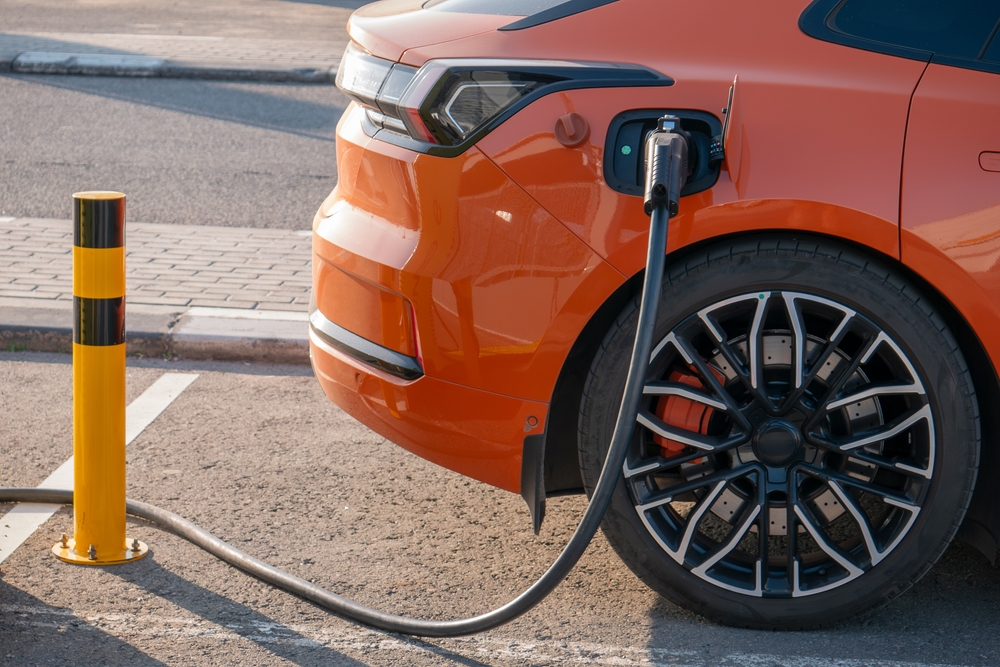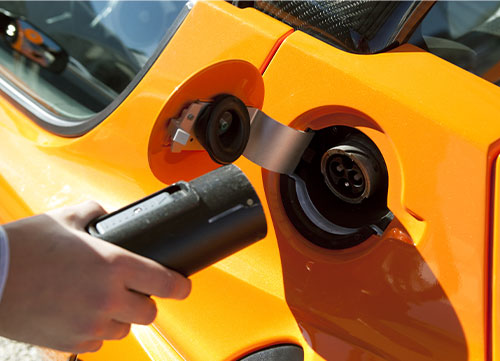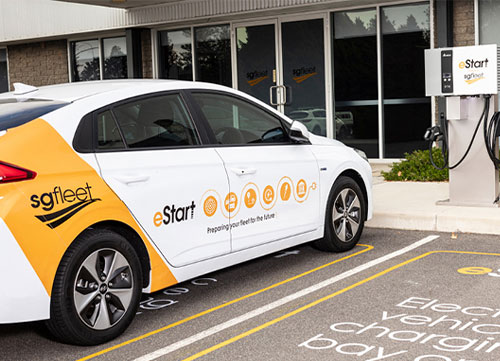What exactly are the tax breaks on electric company cars
By SG Fleet | 17 May 2023

The UK Government is eager to shift towards a greener future, which is why they are incentivising individuals and companies to make the switch to electric vehicles. One of the key areas they have targeted is electric company cars, as they hope to encourage businesses to embrace sustainable transport solutions.
There are numerous tax benefits of using an electric car compared to traditional petrol and diesel vehicles. This article will explore these tax breaks in great detail and explain how they can benefit businesses and end-users alike.
Tax benefits of electric company cars
One of the leading tax benefits of using an electric company car is that the driver is subject to a lower tax amount than Internal Combustion Engine (ICE) vehicles. While there is still some cost to the driver, employees using an electric company car will save a significant amount of money, with current EV company car tax rates sitting at 2%. With some high-emission petrol incurring a company car tax of up to 37%, these cost reductions can be considerable.
The next major tax benefit of using an electric company car is that the employer will only have to pay around 13.8% National Insurance contribution, as electric vehicles fall under the Class 1A National Insurance bracket. This can save businesses a considerable amount of money each year, especially if they have a large fleet of company vehicles.
Employers can also claim 100% first-year allowances for electric vehicles, which means that they can offset the entire cost of the vehicle against their profits in the first year of ownership. Again, this presents large cost savings for businesses that are looking to switch to electric company cars.
Another tax break you get on electric cars is that they are exempt from Vehicle Excise Duty (VED). VED, also known as road tax, can be a major expenditure for those running company car fleets, with the mean annual rate at £180 per car. By investing in electric vehicles, fleet managers can remove this cost altogether.

Comparing the tax breaks for electric and non-electric cars
Petrol and diesel cars are subject to higher rates of company car tax, and employers are not eligible for National Insurance reductions for non-electric company cars.
While non-electric vehicles can still be claimed for first-year allowances, they only allow businesses to claim 18% of the cost of the vehicle in the first year. Moreover, non-electric company cars will still have to pay VED each year.
The cost savings associated with electric company cars make them an attractive option for businesses looking to reduce their carbon footprint and lower their costs.
Business benefits of electric company car fleets
For those managing their company car fleets, electric vehicles can offer significant benefits. The tax breaks mean businesses can save a substantial amount of money by switching to electric cars. Moreover, electric vehicles are typically cheaper to run than petrol and diesel cars, allowing businesses to reduce running costs in the long term.
A similar benefit of using a company EV is that they have much lower maintenance costs than petrol or diesel cars. Electric cars have fewer moving parts than their traditional counterparts, meaning fewer components can fail. This reduces the need for servicing and repairs, ultimately saving the business time and money.
Lastly, electric vehicles can have a positive impact on a business's overall public image. Customers and stakeholders are increasingly demanding that companies demonstrate their commitment to sustainability. By adopting electric cars, businesses can help to build trust and loyalty among customers.
Benefits for end users
Electric company cars can also have numerous benefits for end-users, such as employees who are using them for business purposes. As mentioned above, electric cars are much cheaper to operate than petrol and diesel cars, meaning that employees who are using electric company cars will save money on fuel costs.
Additionally, electric vehicles produce zero tailpipe emissions, resulting in a lighter carbon footprint than petrol and diesel cars. This not only benefits the employee who is driving the vehicle but also the wider community.

Let SG Fleet support your move to an EV fleet
If you’re considering moving your fleet to a zero-emissions model, then take a look at our eStart scheme. Utilising decades of experience in the fleet management industry, we can support you every step of the way when it comes to redesigning your salary sacrifice or company car process.
By assessing your goals and conducting vehicle reviews, we can determine the best infrastructure upgrades for your business, making the shift to a greener future more accessible than ever. For more information on how this scheme can benefit you, get in touch!
Further reading
- What’s Switching to an Electric Vehicle Like?


.png)


.png)
.png)
.png)